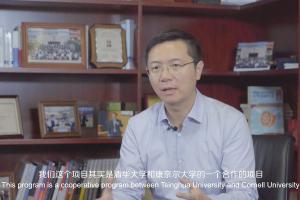Cornell-Tsinghua Dual Degree Finance MBA
This program is jointly offered by PBC School of Finance, Tsinghua University and S.C. Johnson Graduate School of Management, Cornell University. It is the first program where an ivy league university offers its original MBA degree in China. Integrating the extensive resources of century-old Tsinghua and Cornell, the program is committed to building a superior system that combines theory and practice at home and abroad to cultivate financial talents in line with China's national conditions, with a focus on international financial markets. The program continues to develop leading financial talents with interdisciplinary backgrounds who have good command of professional knowledge and possess a global outlook with an eye on domestic market.
This program is jointly offered by PBC School of Finance, Tsinghua University and S.C. Johnson Graduate School of Management, Cornell University. It is the first program where an ivy league university offers its original MBA degree in China. Integrating the extensive resources of century-old Tsinghua and Cornell, the program is committed to building a superior system that combines theory and practice at home and abroad to cultivate financial talents in line with China's national conditions, with a focus on international financial markets. The program continues to develop leading financial talents with interdisciplinary backgrounds who have good command of professional knowledge and possess a global outlook with an eye on domestic market.




 More
More











